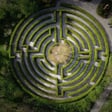
Making wiser decisions - how to escape the overthinking trap
While decision making on a large scale has been studied extensively - as it applies to leadership, business, policy development - we often don't apply much rigor to decisions in our individual lives. Most of us don't formally learn decision making. We pick it up indirectly by watching our elders or leaders and through our own life experience. By trial and error, by making mistakes and gradually (hopefully!) making better decisions as we mature.
But what if we viewed decision making as a key life skill, approaching each decision more systematically, not reactively? Would this make the process less fraught with stress? Could we better prepare our children by delegating responsibility earlier, not hovering as much, and letting them build their decision-making muscle?
An important first step is to realize that not all decisions are equal. We face a range of decisions in life. Small versus large transformative decisions differ in size, but sometimes little recurring choices made consistently - like what we eat, how active we are - can have as much long term impact as more major life decisions like who to marry, where to live or what career to follow.
At times we face simple choices where no matter what we pick we won't go wrong. But at other times, decisions can be complex with high stakes and present both opportunities and consequences. Here we can preserve our mental resources by making the simpler decisions quickly and investing more time in careful, deliberate analysis of the riskier ones. Too often we spend too long on simple matters leaving us drained and unable to deal with bigger decisions.
Easy decisions are easy because there is a clear best option. But when we have multiple options that may be equally good or bad with no clear criteria to help us decide, that can feel much harder. In the case of these hard choices we must, as philosopher Ruth Chang says, dig deep, develop our own criteria and select a path based on what we value most at the time.
Having assessed what type of decision we are facing, the next step is to go about making a decision with as much clarity of mind as we can muster. Here are a few ideas that might help us all with that process…
Photo Credit: Cody Moore



















